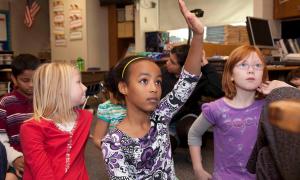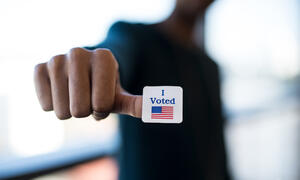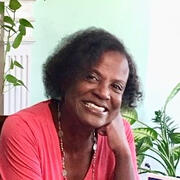article
352 Results
article
Dorothy Height: Fighting for Rights on Two Fronts
On August 28, 1963, at the March on Washington, Dorothy Height sat on the speakers’ platform and listened to Martin Luther King, Jr. deliver his “I Have a Dream” speech. She had helped organize the rally that brought about 250,000 people to the National Mall. In fact, she’d been in the forefront of the civil right struggle for decades as the president of the National Council of Negro Women.
article
Gary Younge: Heroes Are Human
A new book sheds light on the lesser-known struggles behind the March—and how students can benefit from learning about them.
article
text
Informational
Civil Rights March in Selma
This news segment from 2000 recalls the march that took place in Selma, Ala. on March 7, 1965. This day, known as Bloody Sunday, was marked by violent attacks by state and local police upon protesters as they reached the end of Selma’s Edmund Pettus Bridge.
July 2, 2014
article
The Transformation of Hate
“Dad, what is the Clue Clux Clan,” asked my 10-year-old son Bakary as we sat under a shade tree on Saturday in Montgomery, Ala. We were waiting to register for the Southern Poverty Law Center’s 40th anniversary celebration.“Well, it’s the Ku Klux Klan,” I told him. “Do you remember the old song that goes, “Red and yellow, black and white, they are precious in his sight?" Well, the KKK thinks only white people are precious and they try to hurt people who think differently.” “Oh, I’m glad it’s not the ‘Clue Clux Clan’ because they don’t have a clue,” he said.
article
Thank You Primary School Teachers
My 4-year-old daughter Sophia was confused. She looked to me for an answer. “Greyson's not black,” she said. “Her skin is brown.” This was the first time I had heard my daughter bring up the issue of race or skin color.
article
From MLK to #BlackLivesMatter: A Throughline for Young Students

When it comes to making civil rights movements of the past accessible for young students, the connections to the present are right in front of us.
author
text
Literature
What If There Were No Black People?
In this poem, the speaker explores how our culture would be lacking—in people, in music, in movements, in contributions—without contributions of African Americans.
July 3, 2014

